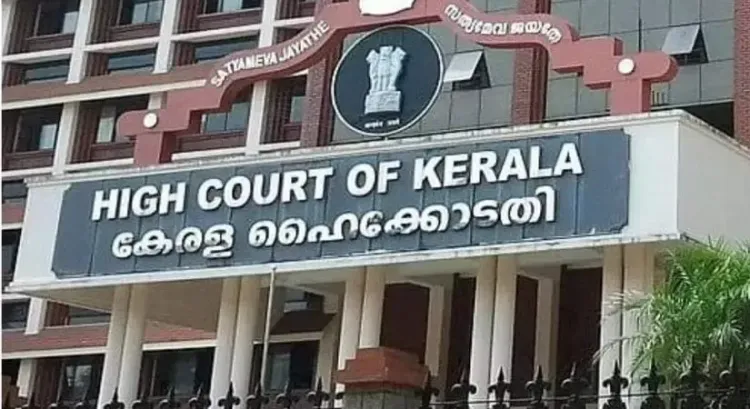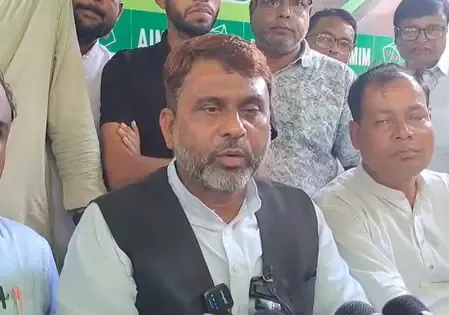What Does the Kerala HC Say About the Munambam Waqf Dispute?

Synopsis
Key Takeaways
- Kerala High Court allows state inquiry into Munambam land dispute.
- Petitioners accused of acting with ulterior motives.
- Conflict dates back to a 1950 land gift.
- Commission led by retired Justice C.N. Ramachandran Nair appointed for resolution.
- Court emphasizes that only directly affected parties can challenge government actions.
Kochi, October 10 (NationPress) - The Kerala High Court has paved the way for a state-led investigation into the protracted Munambam land dispute. The court remarked that the petitioners contesting the commission were representing "certain other interested parties with ulterior motives".
A division bench consisting of Justices S.A. Dharmadhikari and Syam Kumar V.M. has upheld two appeals made by the state government, reversing a previous ruling dated March 17 that annulled the establishment of an inquiry commission aimed at resolving issues between approximately 600 residents and the Waqf Board.
The residents have raised concerns about challenges in paying land taxes and registering property mutations, asserting that their forebears acquired the land from Farook College.
This dispute dates back to 1950 when Siddhique Sait bequeathed the property to Farook College. Years later, the Kerala Waqf Board designated the land as waqf property, nullifying prior transactions and igniting resistance from the local populace.
In November 2024, the state government constituted a commission led by retired Justice C.N. Ramachandran Nair to "find a permanent solution" for genuine occupants and third-party buyers.
The High Court pointed out that the petitioners, including the Kerala Waqf Samrakshana Vedhi and others, could not demonstrate how they were directly impacted, questioning their motives for filing as "persons aggrieved" instead of pursuing a public interest lawsuit.
“They remained inactive until 2019 while third-party rights were being established,” the court noted, emphasizing that the actual transferees, the management of Farook College, have consistently argued that the original 1950 deed was merely a gift and not a waqf deed.
Ultimately, the court determined that the original petitioners were "masquerading the interests of invisible third parties", attempting to reclaim property from the Farook Management. The court also highlighted that the Kerala Waqf Board had not challenged the legitimacy of the government’s commission.
By overturning the single-judge decision, the High Court has allowed the inquiry commission to move forward, potentially leading to a resolution of the long-standing Munambam conflict and reaffirming the legal principle that only individuals directly affected can contest government actions.









